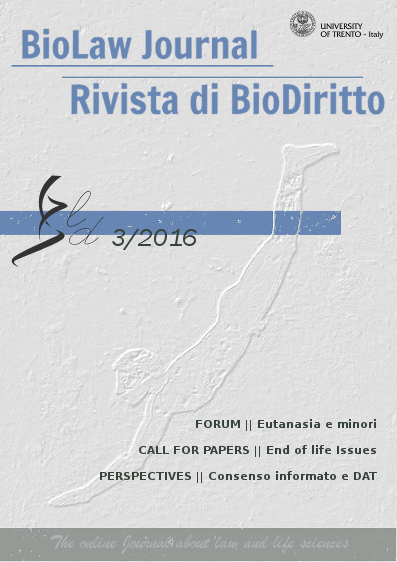Why and how sections 24-26 of the Mental capacity act 2005 on advance decisions need to be reformed
DOI:
https://doi.org/10.15168/2284-4503-190Parole chiave:
Advance decisions to refuse medical treatment, mental capacity act 2005, precedent autonomy, self-determination, preservation of lifeAbstract
In this paper, it is submitted that Sections 24-26 of the Mental Capacity Act 2005 have fallen short of achieving their goals, and should therefore be subject to focused reform. These statutory provisions were aimed at clarifying the scope of the pre-exiting criteria used by common law to establish the existence, validity and applicability of advance refusals of treatment; and at making sure these criteria were applied coherently with the autonomy-based approach that informs the Act. However, the analysis of these Sections as well as of the relevant case law reveals the issues that prevent those objectives from being accomplished. By not introducing clear and explicit presumptions of validity and applicability of the advance decisions, and of capacity of the creator, this piece of law has not effectively tackled the courts' tendency to adopt a paternalistic approach towards precedent autonomy. Yet, these provisions have established a liability regime for those disregarding advance decisions, which clearly favours preservation of life over autonomy. Lastly, their wording, in some cases, seems to allow the revocation of the advance decision by incompetent patients. Accordingly, it is outlined how each of these flaws should be amended so as to bring Sections 24-26 in line with their legal premise: the primacy given to precedent autonomy.##submission.downloads##
Pubblicato
2016-10-31
Come citare
1.
Orlando M. Why and how sections 24-26 of the Mental capacity act 2005 on advance decisions need to be reformed. BioLaw [Internet]. 31 ottobre 2016 [citato 15 febbraio 2026];(3):219-28. Disponibile su: https://teseo.unitn.it/biolaw/article/view/1216
Fascicolo
Sezione
Call for papers





